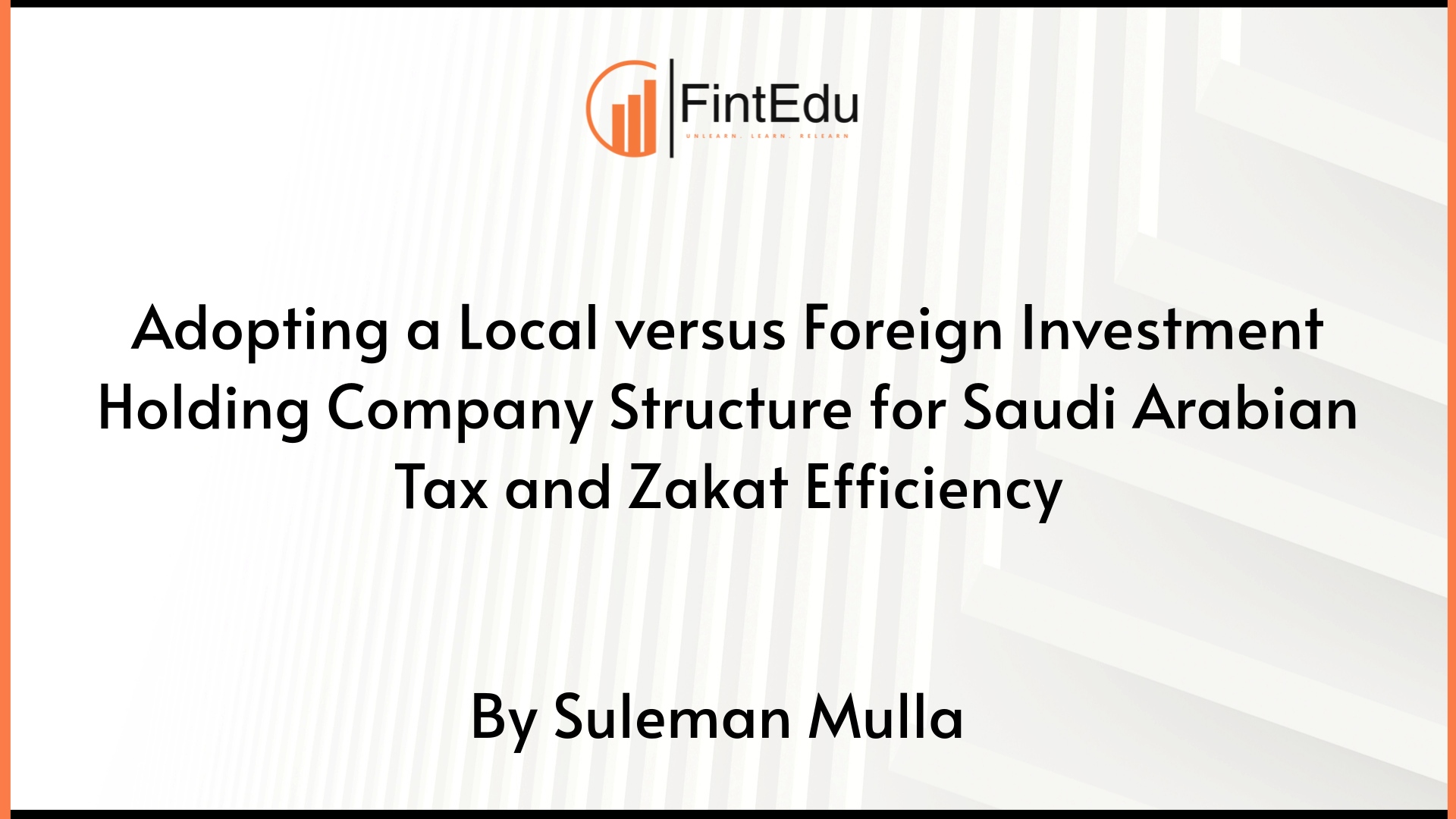LISTEN TO THIS ARTICLE
As Saudi Arabia’s tax landscape evolves amidst its Vision 2030 transformation, businesses frequently turn to the Big 4 firms — PwC, Deloitte, EY, and KPMG — for their tax advisory and compliance needs. However, relying on these global giants may not always be the optimal choice. Below, we explore why businesses should reconsider engaging the Big 4 firms for their transaction tax challenges in Saudi Arabia and how local and boutique firms may provide a compelling alternative.
1. High Costs Without Proportionate Value
The Big 4 firms are known for their premium pricing, which may not always align with the value delivered:
- Expensive Fee Structures: Their global reputation allows them to charge significantly higher fees compared to local firms, straining the budgets of small to medium enterprises (SMEs).
- Generic Solutions: Despite their high fees, the advice provided is sometimes standardized and less tailored to the unique needs of specific businesses.
Comparison with Non-Big 4 Firms:
- Local firms often provide more affordable pricing structures, making them accessible to SMEs and startups.
- Boutique firms typically offer customized solutions, investing time to deeply understand the client’s specific needs and challenges.
2. Limited Local Expertise
While the Big 4 boast global experience, their understanding of Saudi-specific nuances may fall short:
- Superficial Knowledge of Local Regulations: Their large-scale operations can lead to reliance on junior staff who may lack deep insights into Saudi Arabia’s complex and evolving tax regulations.
- Over-reliance on Global Frameworks: Applying generic, globally established tax principles may overlook the intricacies of Saudi’s dual Zakat and Corporate Income Tax (CIT) systems.
Comparison with Non-Big 4 Firms:
- Local firms have in-depth knowledge of Saudi’s regulatory and cultural nuances, ensuring compliance strategies are more practical and effective.
- Regional advisors often maintain closer relationships with ZATCA, providing clients with quicker resolutions and proactive insights into upcoming regulatory changes.
3. Potential Conflicts of Interest
The Big 4 firms often serve multiple clients across various industries, which can create conflicts of interest:
- Compromised Confidentiality: Handling competitors within the same sector could lead to perceived or actual breaches of confidentiality.
- Bias in Audits and Advisory: Simultaneously providing audit and advisory services to the same client can raise questions about impartiality.
Comparison with Non-Big 4 Firms:
- Boutique firms typically have a smaller client base, reducing the likelihood of conflicts of interest and fostering a more personalized approach.
- Non-Big 4 firms prioritize transparency and independence, particularly in audit engagements.
4. Overwhelming Bureaucracy
The size and structure of the Big 4 firms can result in inefficiencies for clients:
- Slow Response Times: Layered hierarchies and bureaucratic processes may delay the resolution of urgent tax issues.
- Rigid Processes: Their standardized workflows can lack the agility needed to address rapidly changing regulations in Saudi Arabia.
Comparison with Non-Big 4 Firms:
- Smaller firms are more agile and responsive, often providing faster turnaround times for pressing matters.
- Clients can typically access senior advisors directly without navigating multiple layers of bureaucracy.
5. Dependence on Junior Staff
Despite their reputation for expertise, much of the work at the Big 4 is often handled by less experienced staff:
- High Turnover Rates: Frequent staff changes can disrupt continuity and impact the quality of service.
- Limited Senior Involvement: Direct involvement from senior professionals is often minimal, leaving critical tasks to junior team members.
Comparison with Non-Big 4 Firms:
- Boutique firms often have smaller, more stable teams where senior professionals are directly involved in client engagements.
- Clients benefit from consistent service and advisors with deeper institutional knowledge of their operations.
6. Overemphasis on Technology
While digital transformation is essential, the Big 4’s heavy reliance on technology can sometimes be a drawback:
- Generic E-Invoicing Solutions: Their one-size-fits-all approach to implementing e-invoicing systems may not address the specific needs of local businesses.
- Data Discrepancies: Automated systems can produce errors that require significant manual intervention, increasing costs and complexity.
Comparison with Non-Big 4 Firms:
- Local firms focus on tailored digital solutions that align with a client’s specific operational needs.
- Boutique firms are more flexible in integrating technology without sacrificing personalized service.
7. Alternative Local Expertise
Saudi Arabia’s growing tax advisory market includes many local and boutique firms that can offer more personalized and cost-effective services:
- Deep Understanding of Local Context: Local firms are often better equipped to navigate the unique regulatory and cultural environment in Saudi Arabia.
- Tailored Solutions: Smaller firms are more flexible and responsive, providing customized advice that aligns closely with client needs.
Conclusion
While the Big 4 firms bring global recognition and resources, their high costs, limited local expertise, and potential inefficiencies make them less ideal for some businesses in Saudi Arabia. Non-Big 4 firms, on the other hand, offer several advantages, including cost-effectiveness, localized expertise, and personalized services. By partnering with these smaller firms, businesses can achieve better value and compliance outcomes tailored to their specific needs.
As Saudi Arabia’s tax environment continues to evolve, exploring alternatives to the Big 4 can empower companies to navigate challenges more effectively and sustainably.
Disclaimer: Content posted is for informational and knowledge sharing purposes only, and is not intended to be a substitute for professional advice related to tax, finance or accounting. The view/interpretation of the publisher is based on the available Law, guidelines and information. Each reader should take due professional care before you act after reading the contents of that article/post. No warranty whatsoever is made that any of the articles are accurate and is not intended to provide, and should not be relied on for tax or accounting advice
Contributor
Related Posts

@@PLUGINFILE@@/The%20Role%20of%20AI%20and%20Emerging%20Technology%20in%20Tax%20and%20Zakat%20i...
Read More
@@PLUGINFILE@@/The%20King%20Abdullah%20Financial%20District%20%28KAFD%29%20in%20Riyadh%20Posit...
Read More
@@PLUGINFILE@@/Adopting%20a%20Local%20versus%20Foreign%20Investment%20Holding%20Company%20Stru...
Read More